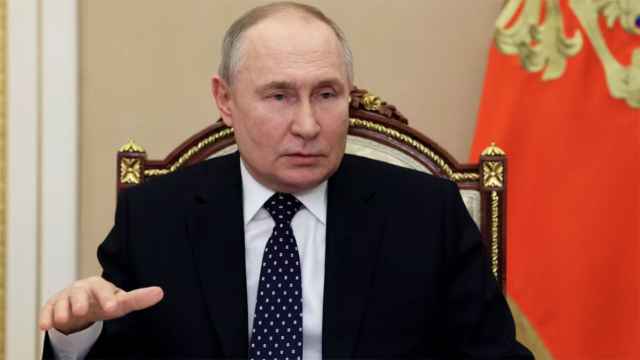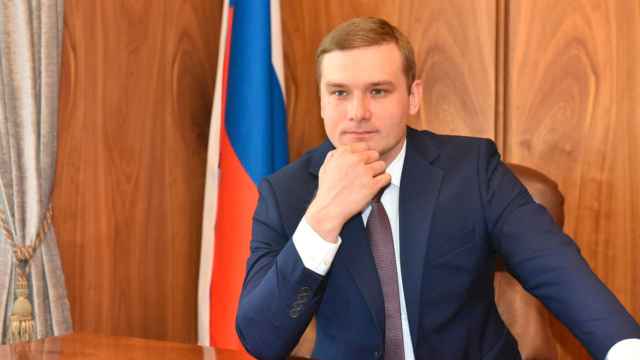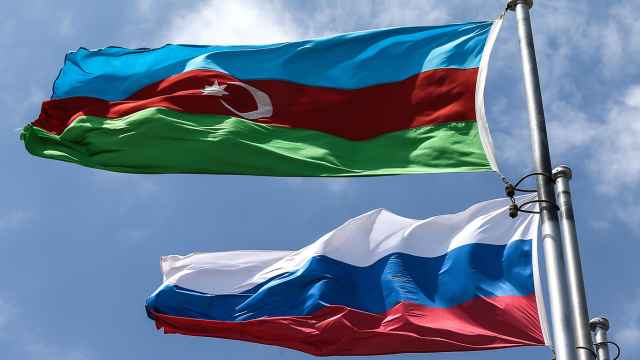A delay in placing a sovereign eurobond means that Russia risks failing to cash in on favorable bond market conditions that have driven down yields to historic lows.
Bureaucratic wrangling has held up borrowing plans, causing a dollar eurobond placement to be postponed at least three months, Deputy Finance Minister Sergei Storchak said.
Markets and investors expected Moscow to soon raise as much as $7 billion, or the whole of the 2013 borrowing plan, on international markets.
But jostling between the ministries in charge has halted the plans for now.
"We have not yet chosen [lead managers]," Storchak said. "We are still in the process of negotiations with the Economic Development Ministry. They have not supported our approach to the organization of this process. When we will come to an agreement, that I don't know."
For many cash-strapped governments, including several eurozone countries, such a delay could be disastrous.
But for Russia, which runs a balanced budget thanks to high oil prices, the only penalty could be just a higher yield paid to investors.
Russia's level of sovereign debt, about 10 percent of gross domestic product, does not compare to that of Greece's more than 160 percent or Japan's 200 percent.
For now, markets have shrugged off the change of plans, as analysts said there are plenty of other issues to choose from, and the delay will not affect Russia's healthy fiscal stance.
"I would have been worried if Russia's state finances were in a precarious state, in a position like Ukraine, and they thought they couldn't get the bond away," said Werner Gey van Pittius, emerging market portfolio manager at Investec Asset Management.
The longer Russia waits, however, the greater the chance that it will have to pay a higher yield, as improving investor sentiment globally leads to less demand for the safe-haven U.S. bonds that provide a benchmark for Russia's eurobonds.
"If there's a pickup in the American economy, the yields on U.S. Treasurys will be higher and higher going forward," said Dmitry Dudkin, an analyst at UralSib. "Dramatically higher yields are highly unlikely, but something in the area of 2.5 percent for 10-year Treasuries is achievable. That will put additional pressure on Russian government debt."
Yields on Russia's benchmark eurobond maturing in 2030, the Russia-30, hit a historic low of 2.5 percent last month. On Friday, the bond traded at 3.09 percent, with a rise in yields in the last few days following a general movement in the U.S. Treasurys.
"If you look at the longer horizon, the graph of Russia-30, for instance, yields below 3 percent, or 3 percent yields, were never seen before," Dudkin said. "So the quicker they launch, the better. It is a pity [for them] that they are delaying it."
In March, Russia raised $7 billion in eurobonds in the largest emerging-markets sovereign offering since at least 2000, covering its foreign borrowing plan for the year and paving the way for corporate issuance, which had struggled after the 2008-09 financial crisis.
According to Reuters calculations, Russian companies raised more than $46 billion in foreign markets in 2012. This year, there is no pressing need for another benchmark.
"We'll be checking market conditions," Storchak, in charge of Russia's debt policy, said at a news conference Friday. "There is no need to issue at any price."
But the Finance Ministry still wants to place the whole sum in one go.
"We should approve the lead managers, and then the lead managers should pause to explain their views on tactics," Storchak said. "Afterward, we will have to decide whether we hold a road show or not. … I'm afraid it all will not happen anytime soon."
A Message from The Moscow Times:
Dear readers,
We are facing unprecedented challenges. Russia's Prosecutor General's Office has designated The Moscow Times as an "undesirable" organization, criminalizing our work and putting our staff at risk of prosecution. This follows our earlier unjust labeling as a "foreign agent."
These actions are direct attempts to silence independent journalism in Russia. The authorities claim our work "discredits the decisions of the Russian leadership." We see things differently: we strive to provide accurate, unbiased reporting on Russia.
We, the journalists of The Moscow Times, refuse to be silenced. But to continue our work, we need your help.
Your support, no matter how small, makes a world of difference. If you can, please support us monthly starting from just $2. It's quick to set up, and every contribution makes a significant impact.
By supporting The Moscow Times, you're defending open, independent journalism in the face of repression. Thank you for standing with us.
Remind me later.





